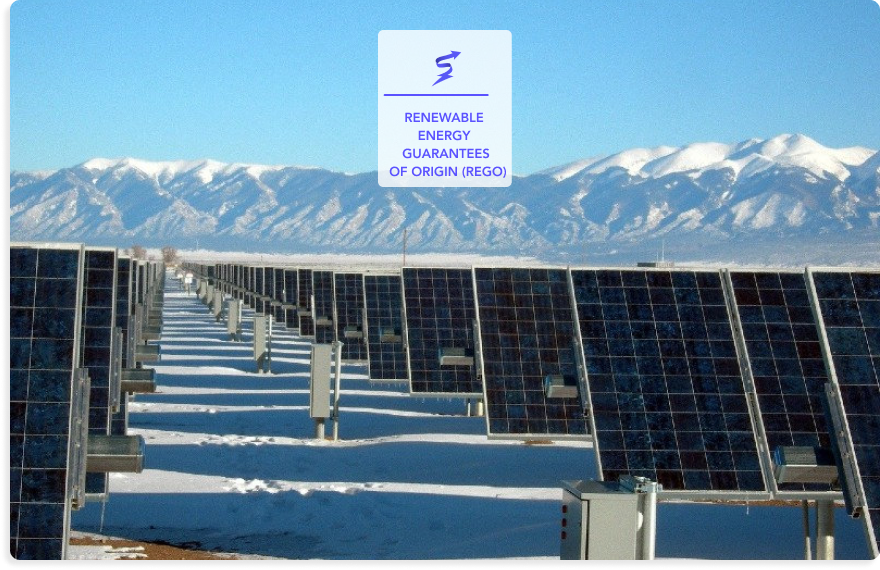Renewable Energy Guarantees of Origin (REGO)

Switch energy suppliers in minutes to save up to £400 a year!
Take control of your energy bills! Request a callback and let our experts guide you on how to save on your energy bills.
Notice
The Renewable Energy Guarantees of Origin, or REGO scheme, exists to provide complete transparency to all consumers about the amount of the energy they use that comes from renewable or green energy sources, so we can be clear about our green energy tariffs.
Last updated: November 2022

The scheme is administered by the industry regulator Ofgem, who are acting on behalf of the Department for Business Energy and Industrial Strategy.
The transition from a carbon-based economy to one based on renewable energy is well under way. Here in the UK, we are getting more and more of our energy from sources like wind and tidal power and less from oil, coal and natural gas.
But how do you know that the energy you are getting genuinely comes from a renewable source? There have been cases of ‘greenwashing’ in recent years where companies use eco-credentials to boost sales without the accompanying change in strategy. That is why schemes like REGO can help to instill trust.
How does REGO work?
The regulator Ofgem issues one REGO certificate per megawatt hour, or MWh, of renewable energy produced. This is to prove that the energy has come from genuine renewable sources.
Each certificate issued is referenced and checked against those held by suppliers at the end of the year. This ensures that no energy company can make false claims about supplying renewable energy. So, if you are paying for energy from a renewable sure, you can be fairly sure it is the real deal.

Looking to switch to green energy suppliers?
Free Service
Choose the best one that best fits your needs with Switch Plan.
More info
Who can apply to the REGO scheme
Renewable generators of all sizes working in the UK and Northern Ireland can apply to be part of the scheme. To apply you should do so via the Renewables and CHP Register here.
In order to receive the certificates, generators must submit data via this register. Once they have been issued, the certificates can only be traded amongst other registered renewable generators.
Benefits of REGO
There are a number of key benefits of the REGO system for both businesses and energy customers.
- If you are a business looking to reduce your footprint or advertising yourself as sustainable, REGO can be a crucial part of your strategy
- For energy customers, REGOs are the best way to ensure the energy you consume is matched by a renewable generator. This will help you track your carbon footprint and ease the transition to a low carbon energy society.
![]()
Disadvantages of REGO
However, the system is not perfect and there are also a number of drawbacks.
- REGO certificates can be bought and sold on a supply and demand basis, meaning it can be hard for customers to know if their energy company actually produced the green energy themselves or simply purchased the certificates
- Renewable generation is subsidised already so the REGO system does little to encourage new renewable generation
- Suppliers can therefore become ‘green’ overnight without actually forming relationships with green generators
Looking for a greener energy deal?Leave your phone number to request a call back from us!
Free Service
FAQ
What are Renewable Energy Guarantees of Origin?
The Renewable Energy Guarantees of Origin, or REGO scheme, produces certificates for amounts of renewable energy created with the aim of helping consumers learn about the amount of their energy that comes from renewable sources.
How does REGO work?
Ofgem issues one REGO certificate per megawatt hour, or MWh, or renewable energy produced. Each certificate is checked against those held by suppliers at the end of the year.
What is the future of REGO?
Brexit has cast some doubt over the future of REGO across Europe and some customer concerns about trading the certificates may be an issue. However, with more and more consumers wanting green energy, REGO may play a bigger role in energy production in years to come.
Are there any disadvantages of REGO?
Yes, there are. REGO certificates can be bought and sold so it can be hard for customers to know if their energy company actually produced the green energy themselves. Energy companies can make themselves appear greener than they actually are.
Updated on 29 Jan, 2024
William Dautel
UK Content Manager
William is a content marketing specialist. After 3 years writing brand strategies he joined papernest to help create the best content to help people handle and save on their utilities.
William is a content marketing specialist. After 3 years writing brand strategies he joined papernest to help create the best content to help people handle and save on their utilities.
Comments